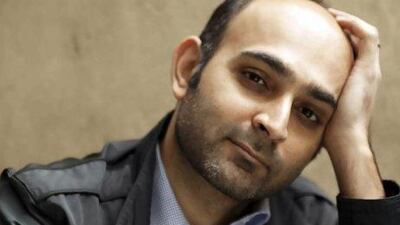A great fire roars in the hotel lobby while outside London freezes in the uncharacteristic spring weather. Somewhere beyond the warmth of the hearth, a grateful bunch of tourists enjoy the luxury of a Mad Hatter-inspired high tea. None of this could be farther away from the unnamed setting of Mohsin Hamid's much-heralded recent novel How to Get Filthy Rich in Rising Asia.
This is Hamid’s third novel and it has hit the global literary circle with great aplomb, for not only has the 41-year-old writer been known to draw his fans by the simplicity and poignancy of his prose but also by his beguiling use of different literary techniques. In this case, the novel is “de-branded”. The writer has skilfully left out names of characters and places, leaving the reader to draw upon their imagination. It is also written entirely in the second person in the format of a self-help book. When asked why he chose the self-help format for his novel, he answers: “Playing with form liberated me. It allowed me to get to a place of real intimacy in the novel and to build and earn a relationship with the reader.”
Conversation with Hamid opens with talk of his young family. “This is my first book written as a father,” he says, with an expression of pride on his face. Indeed, fatherhood seems to have had a great influence on the writer’s multi-generational narrative. While the nameless protagonist of the novel is forced to move from an extended family in the village to the nuclear family in the city, Hamid himself enjoys the comfort of living in an extended family in Lahore. After having lived in both the US and London, he finally decided to move back to Lahore a few years ago. Hamid says that this decision to move back to the heart of the extended family “allowed me to see more – exposed to many more differences and exposed everyday to parts of the entire human life story”.
Being part of a larger support system allowed him the freedom to write without constraints but also allowed him to observe the stages of human life around him – from his young children to his elderly parents – and gave his writing a different depth and multifaceted dimension. “My experience of being a human being broadened,” he says.
Hamid's huge success as a novelist has also transferred to the big screen. His first novel Moth Smoke, written when he was 23, was made into a telefilm in Pakistan and is being made into a movie by Rahul Bose. The Indian director Mira Nair has made his second novel The Reluctant Fundamentalist into a movie, which opened last year's Venice International Film Festival and Doha Tribeca Film Festival, and is scheduled to be released in the US at the end of the month.
“The movie has actors from India, America and Pakistan. This is what it should be really like, a global acceptance of everything instead of labelling things from a particular place or race or religion,” says Hamid.
The success of How to Get Filthy Rich in Rising Asia has even had reviewers draw parallels to The Great Gatsby. Hamid himself is incredibly humble about all the hype. "It means a lot to me when people have enjoyed reading my books and have found something to reflect upon in them. I am grateful for the position in which I find myself at the moment and owe this to the readers."
There is an appealing air of modesty about Hamid. Most writers lack his humility and his belief that novels are meant to be enjoyed by the reader.
“Readers don’t owe you their attention, as a writer you are an entertainer, focus on intensity, create a novel which leads to that gateway that in itself is democratic,” he says.
Hamid refuses to believe that the future of the novel is bleak and that in this age of Twitter and Facebook the novelistic form will soon disappear. “A novel should do something which it has not done before. Create something fresh and new, unusual and yet traditional, play with form and yet entertain at the same time. We as authors owe this to the readers.”
Mohsin Hamid's novel How to Get Filthy Rich in Rising Asia is out today
Follow us
Follow us on Facebook for discussions, entertainment, reviews, wellness and news.

